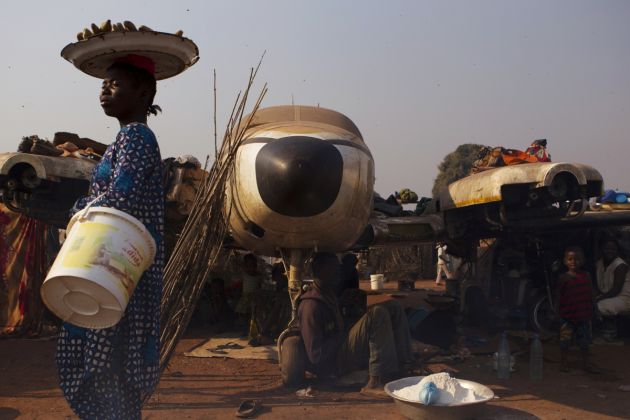Defuse tension before it gets uncontrollable, UN's Pillay urges CAR religious, political leaders

GENEVA - The U.N. human rights chief has urged everyone with influence to encourage Christian and Muslims leaders, political and tribal chiefs to join in defusing inter-communal tensions in the Central African Republic before they become totally uncontrollable.
High Commissioner Navi Pillay made her call Monday at a special session of the United Nation Human Rights Council on the situation in the Central African Republic.
"I urge the international community to increase its support to the Central African Republic for prompt restoration of security and State authority throughout the country, the promotion of the rule of law, and the realisation of economic, social and cultural rights," said Pillay.
"A more robust response to the crisis is urgently needed in the Central African Republic to protect civilians, prevent further violence, end impunity and promote reconciliation."
Later Monday, European Union foreign ministers representing 28 nations unanimously approved a joint military force to assist French and African troops trying to stem the spiralling violence in Central African Republic, also known as CAR.
Pillay cited an earlier report in which she noted, "I expressed serious concern over the increasing ethnic and religious dimensions of the crisis."
A senior U.N. official warned last week of a risk of genocide in CAR unless there was a stronger international response spurring the EU to make its commitment.
The EU will prepare to send some 500 soldiers, but less than expected, to help to bring stability to increasing anarchy around the CAR capital, Bangui, French Foreign Minister Laurent Fabius announced.
In December France contributed 1,600 troops to a 4,000-strong African Union mission sent to try and bring some order to CAR which has a population of 4.5 million people.
For months, minority Muslims, whose leaders headed a recent government and Christians have engaged in bloody sectarian clashes.
It began in March last year when a Muslim rebel group took over the country attacking communities where Christians lived.
In September Christians communities hit back s who took over the country and the violence began to escalate.
"The humanitarian situation continues to be a major concern," said Pillay noting that as of 7 January, there were 935,000 internally displaced people, half of them in Bangui.
"The delivery of humanitarian assistance outside Bangui and in the bush is severely hampered by the volatile security situation. As a result, according to the United Nations and humanitarian organizations, nearly half of the country's population is in need of humanitarian assistance."
Earlier in January the church-backed ACT Alliance had warned that intense CAR fighting was proving a major hindrance to relief efforts aimed at reaching the 2.2 million people needing emergency assistance.
ACT Alliance said the collective response by relief organisations could only be strengthened when security improved.
"The absence of law and order and gross human rights violations leave the population, of which over half are children and youth, desperately needing support," said ACT Alliance general secretary John Nduna
The U.N. human rights office in Bangui said it had reports of "deliberate summary executions of Muslim civilians, including women and children."
It also had reports of "summary executions of Christian civilians, mostly males" in reprisal attacks in Bangui and Bossangoa.
"The mission concurred with estimates that in Bangui alone at least 1,000 people were killed during the 5 and 6 December violence."